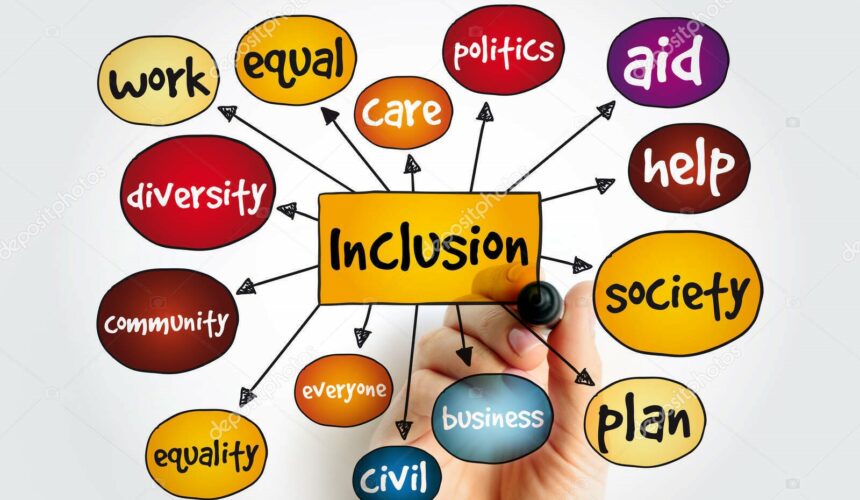Easter 6, 5 May 2024
Readings: Acts 10. 44-end; 1 Jn. 5. 1-6; Jn. 15. 9-17
Theme: The Inclusion of the Other
One of the central themes of the western democratic world in recent times is that of inclusion. Whether this be including women at all levels of society and church, including people of colour and different ethnic backgrounds in positions of leadership and authority or of broadening the acceptable range of sexual differences, so that the acronyms of inclusion become ever longer, the topic of inclusion is certainly a characteristic trend of our time. And, it is not an exaggeration to say that the roots of these ever expanding circles of inclusion lie in the Judeo-Christian foundations of western liberalism. The claim of the church following the resurrection that the message of the gospel is for everyone and that ‘God has no favourites’ is undoubtedly at the roots of this tendency in western history to build ever expanding circles of inclusion into social and political life.
In many ways, this is the direct result of the resurrection of Jesus. It is precisely because there is one Lord of all that all are one. The message of Peter in our first reading from the Acts of the Apostles emphasizes the origins of this universalizing tendency in the early Judeo-Christian debate between the Jewish and gentile Christians. As the early church lived its life in the light of the resurrection of Jesus it became clear that the Holy Spirit was being poured out on the gentiles as well as the Jews. The consequence of this realization is that Peter calls on the gentiles to be baptized so that they can be fully included into the life of the early church. This early experience of the primitive church has the effect of a pebble dropped into a river as the ripples spread out in ever expanding circles until they reach the shore. The pebble dropped into the river of history is of course the death and resurrection of Jesus. This ripple effect of the paschal mystery of Jesus is still in the process of reaching the shores of history and the tendency to include all peoples in our societies is one of the fruits of this.
Yet, inclusion is not simply homogenization. The other remains other to us and the process of inclusion is one which is on a journey of recognizing differences and not simply reducing them to some arbitrary standard of the same. So, whilst as St Paul tells us in the Letter to the Galatians that, ‘there is neither Jew nor Greek’ (Gal. 3. 28-29) this does not mean that Jews become Greeks and vice versa, but rather that no one people has exclusive rights to the fruits of the resurrection over another. All are to be included in this new message of the risen Christ, but as themselves. Just as we will hear in a couple of weeks during the readings from Pentecost, the voice of the Spirit of the risen Christ is heard in each person’s native language. There is not a lingua franca of the Holy Spirit, if you will, differences are included in the one message of the risen Christ.
What does this mean for us, as Christians today? How are we to respond to this inclusion brought on by the resurrection of Christ? Perhaps the central challenge for us as Christians is to search for a way of being one in diversity. Here on the Costa del Sol we are many different types of Christians and we should try to cultivate a sense of this oneness in diversity firstly in our attitudes to one another.
For a long time, as I am sure you do not need me to remind you, the different denominations of Christianity operated with rather hostile attitudes to one another. Each tradition would often excommunicate the other, so to speak, as it viewed itself as the only legitimate expression of Christianity. This has greatly changed in recent years and now, we might even be faced with the opposite challenge of assuming that our differences are not important and so we are really just the same as each other. Different traditions of Christianity express different understandings of the gospel and the way forward is not to assume that everyone is really saying the same thing. This would be fall into the trap of attempting to build a unity based on uniformity rather than on the mutual recognition of differences. This can appear to be an easier way as it does not have to do the hard work of understanding the differences between us and coming to a deeper appreciation of their significance in the lives of people. In a way, this simply repeats the mistakes of the former exclusive approach in Christianity which assumed that ‘my way is the right way’, as the underlying assumption of this uniform approach to unity is pretty much the same as that former assumption. No, if we are to move forward, we should learn to celebrate our differences, to learn from one another and to realize that the Holy Spirit leads people in ways which respect their own singular characteristics. This is not to say, that everything we do is fine. The process of engaging in learning from one another demands an honesty to recognize when certain aspects of our own tradition are actually deformities of the message of the Gospel. The churches are in need of continual process of reformation if they are each to be faithful to the message of the risen Christ.
So, as we journey together this Easter towards the feasts of the Ascension and Pentecost, let us ask the Lord for his guidance as to how we can better respond to his call that all should be baptized in the name of the Father and of the Son and of the Holy Spirit. Amen.

